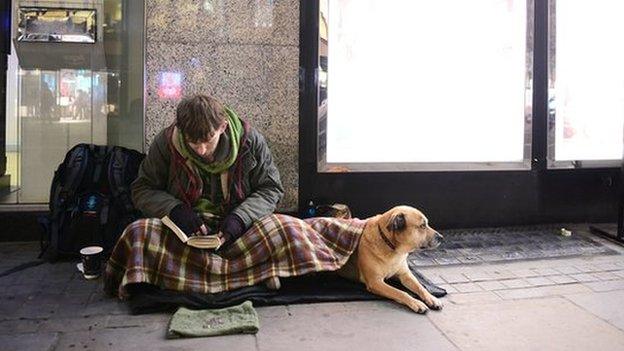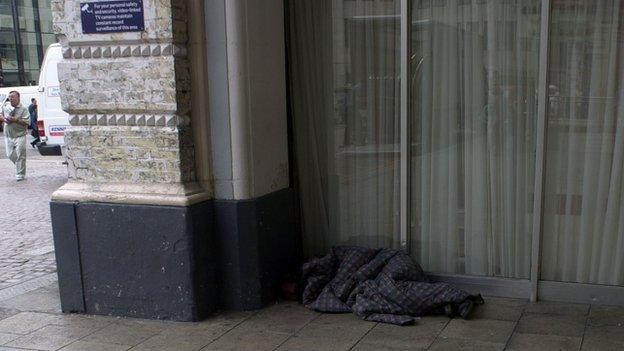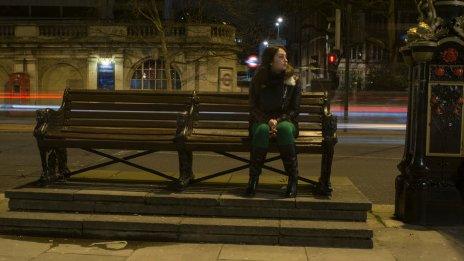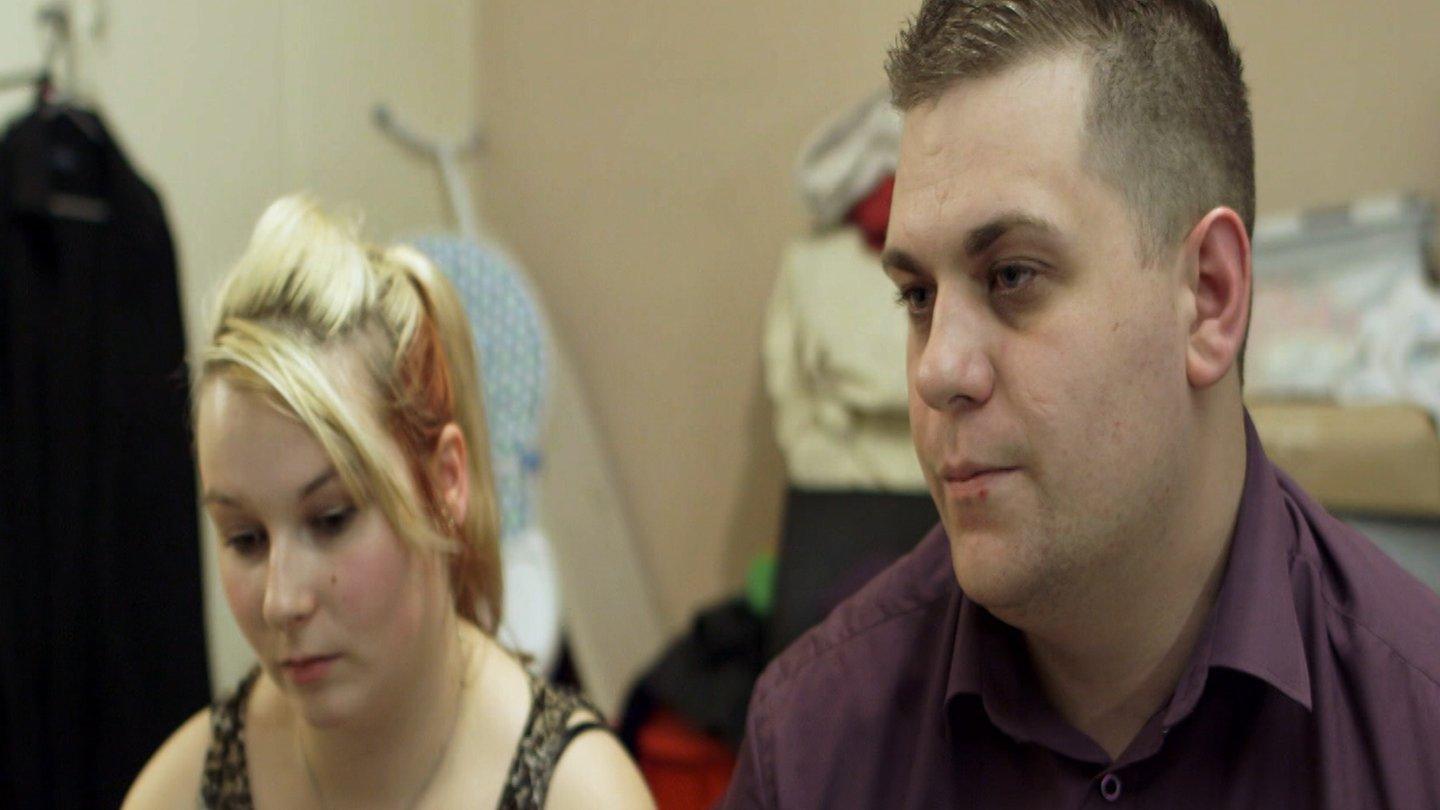Homelessness more widespread than official figures show, charities warn
- Published

Rising numbers of people are at risk of homelessness in England, but official data does not show this, a study says.
Research by charities Crisis and the Joseph Rowntree Foundation suggested "informal" methods used by councils to tackle the problem had masked a 9% rise in cases in 2013-14 - to 280,000 cases.
Official statistics put the number of "accepted homeless" cases at about 52,000 last year, down 3% from 2012-13.
The government said the charities' figures were "misleading".
The annual independent study - which drew on a survey of England's 326 councils in 2014 - said the rise in the number of people facing homelessness was in part the result of benefit cuts and sanctions.
It also blamed a "woeful lack of affordable housing" which meant growing numbers of people were having to live away from their area.
Authors said nearly two-thirds of councils thought "headline" homelessness figures no longer reflected local trends because authorities were increasingly reliant on "informal" approaches to homelessness which are recorded separately.
The study combined the official "homelessness acceptances" figure from last year (52,270) with the number of homelessness "prevention and relief" cases (227,800) - where councils had taken steps to tackle the problem.
Examples of these approaches include offering financial assistance, debt advice, help to stay in a tenancy or family mediation, the report said.

Lead author Dr Suzanne Fitzpatrick said that, taking such actions into account, "we see that the number of cases of people facing or at serious risk of homelessness rose sharply last year.
"Yet this alarming trend has gone largely unnoticed by politicians or the media".
'True scale'
The study also found that:
Increasing numbers of people are being forced to move away from their local area to find affordable housing. Almost one in four (24%) of placements last year were "out of area", marking a 26% year-on-year increase.
Rising numbers of people are facing debt problems. In 2013-14, councils dealt with 50,000 cases of debt advice or financial assistance, showing a 47% year-on-year increase.
A sharp increase in the number of people becoming homeless after losing their privately-rented home, which now account for 30% of cases.
Homelessness is rising fastest in London, with a 12% increase in the number of people facing homelessness in the last year.
One in 10 councils think the homelessness impacts of welfare reform had largely run their course - but 53% fear worse is to come over the next two years.
Jon Sparkes, chief executive of Crisis, said the report revealed "the true scale of homelessness in England, which headline figures no longer reflect".
"Council officials are clear that benefit cuts and sanctions are taking a dreadful toll on people's lives, with rising numbers facing the loss of their home at a time when councils are being forced to cut services. This is a desperate state of affairs."
'Increased spending'
But Homelessness Minster Kris Hopkins said: "These claims are misleading and the fact is statutory homelessness remains lower than in 27 of the last 30 years.
"The figures include those who councils have helped to avoid being made homeless, as well as those accepted as homeless - and shows the wide range of options available to help prevent homelessness in the first place."
He said the government had increased spending to prevent homelessness and rough sleeping, making over £500m available to local authorities and the voluntary sector - including £14m for Crisis - which would "help around 10,000 single homeless people find and sustain accommodation in the private rented sector".
The research was compiled by academics based at Heriot-Watt University, the University of New South Wales and the University of York.
- Published7 January 2015

- Published16 December 2014

- Published23 June 2014
